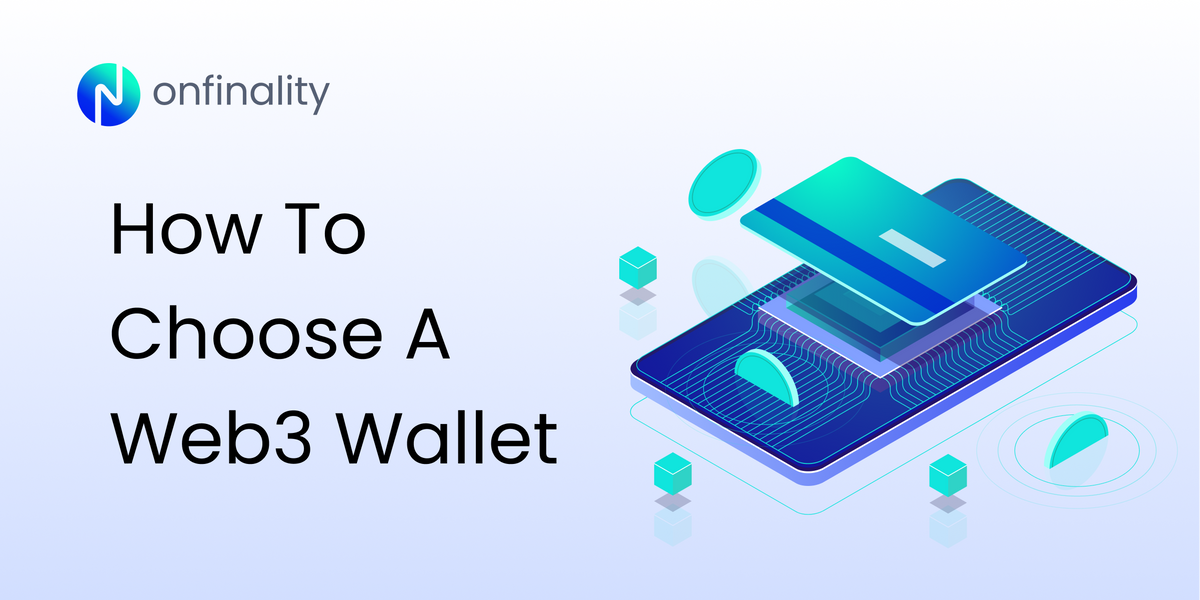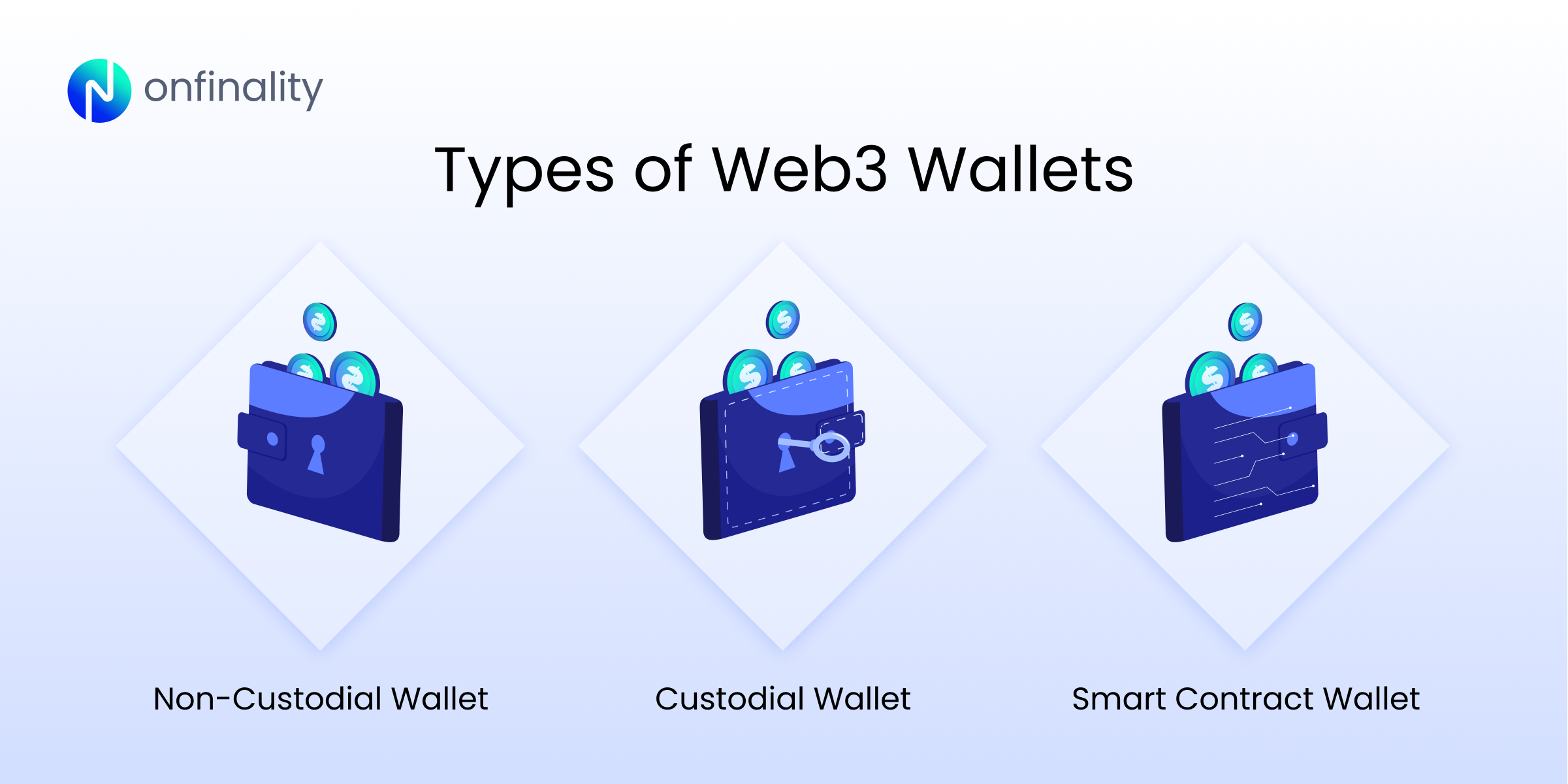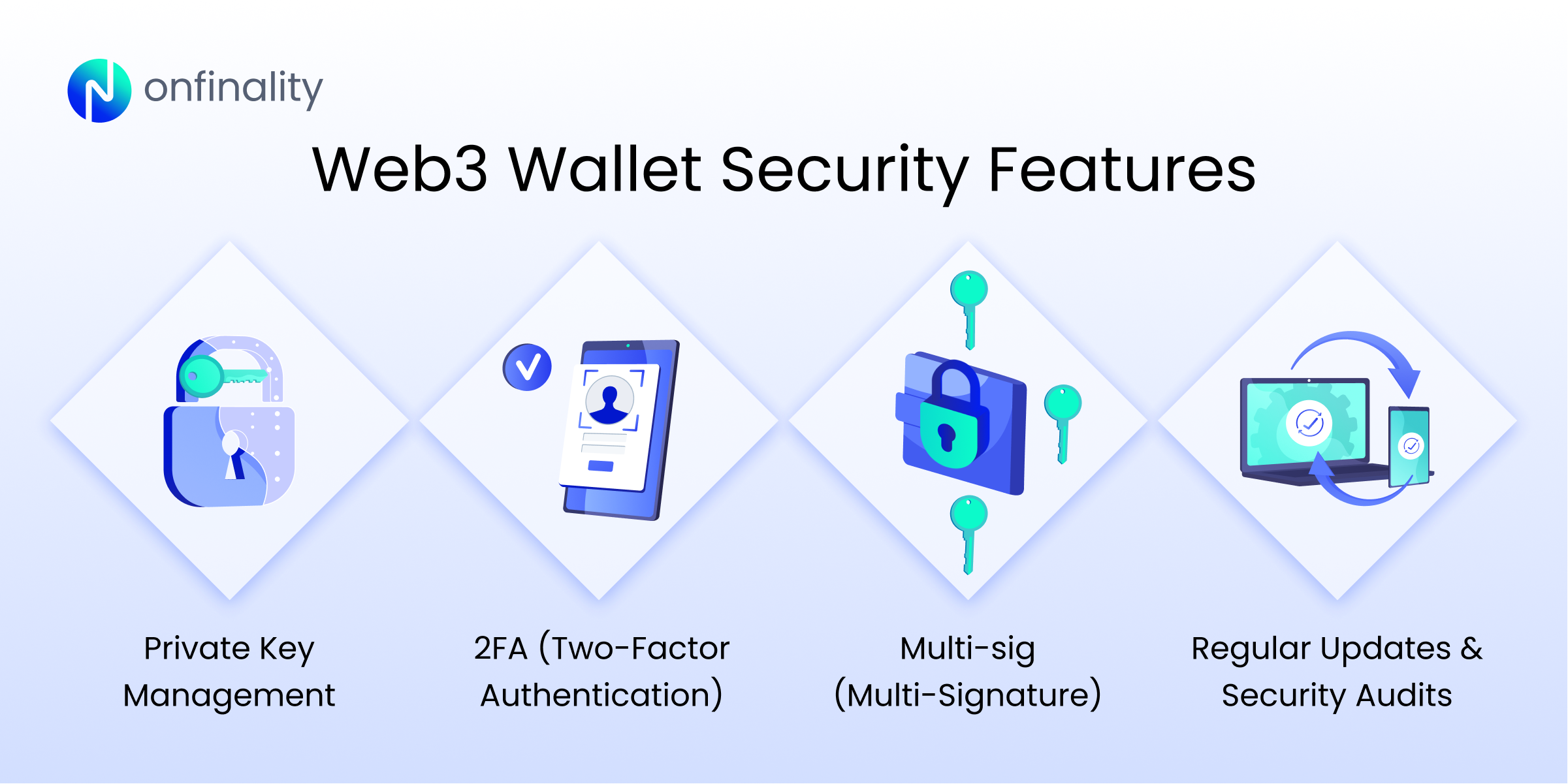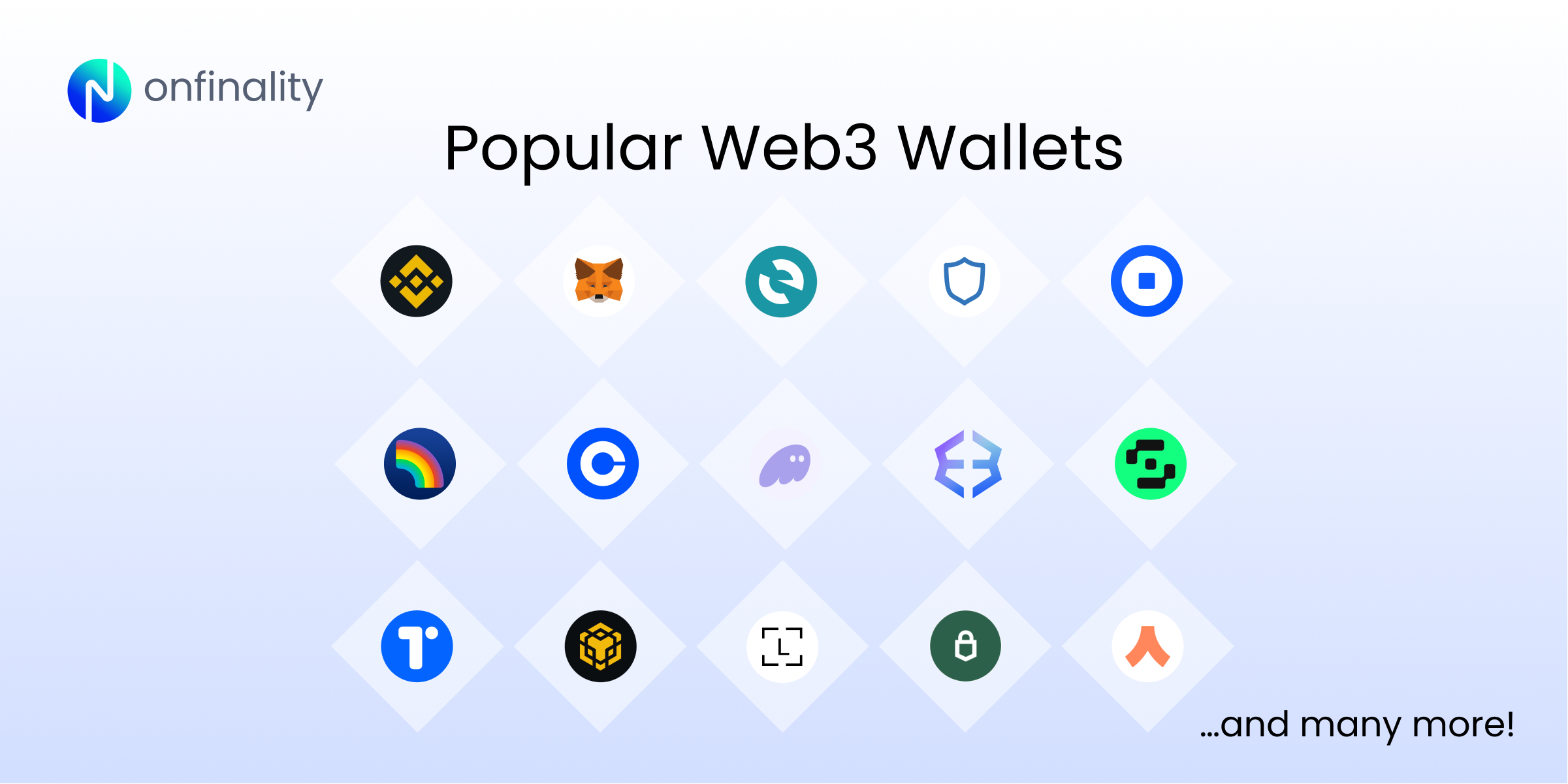How to Choose a Web3 Wallet
OnFinality, a multi-chain infrastructure provider, guides you through step-by-step to choosing your web3 wallet!

OnFinality is a blockchain infrastructure platform that saves web3 builders time and makes their lives easier. We deliver easy-to-use, reliable and scalable API endpoints for the biggest blockchain networks and empower developers to automatically test, deploy, scale and monitor their own blockchain nodes in minutes.
OnFinality supports a diverse range of projects within the web3 ecosystem, including key players in DeFi, like web3 wallets.
In this article, we walk you through the key factors to choosing a web3 wallet and provide recommendations for some popular wallets in the space.
Let’s dive in!
Contents
- Introduction
- What are Web3 Wallets
- Importance of Choosing a Web3 Wallet
- Types of Web3 Wallets
- Security Considerations
- User-Experience, Blockchain Compatibility, Provider’s Reputation
- List of Top Web3 Wallets
Introduction
Web3 wallets have witnessed significant growth in adoption rates, reflecting the expanding influence of decentralised applications (dApps) and cryptocurrencies. With the increasing popularity of blockchain technology, web3 wallets have evolved from simple crypto wallets to sophisticated tools that enable users to interact with the decentralised web seamlessly.
What are web3 wallets?
Web3 wallets are digital wallets designed to interact with dApps and store cryptocurrencies securely. Unlike traditional wallets, web3 wallets utilise blockchain technology, enabling users to control their private keys and manage various blockchain assets, to effectively become their own bank. These wallets act as a gateway to the web3 ecosystem, allowing users to access dApps, execute smart contracts, and engage in decentralised finance (DeFi) activities across multiple blockchains.
Why is it important to choose the right web3 wallet?
Choosing the right web3 wallet is crucial for anyone venturing into the world of dApps and cryptocurrencies. A well-selected wallet ensures the safety of your digital assets, protects your privacy, and provides a user-friendly interface for seamless interactions with dApps.
Types of Web3 Wallets
- Custodial Wallets
- Non-Custodial Wallets
- Smart Contract Wallets
There are three main types of wallets and each cater to users of different experience levels and varying security functionalities. A beginner might choose to start with a Custodial Wallet for its convenience and later progress to a Non-Custodial Wallet for greater control over their funds, while organisations like businesses and DAOs (Decentralised Autonomous Organisations) will find Smart Contract Wallets useful for collective governance and management of funds.

1. Custodial Wallet
A wallet where a third-party holds and manages the private keys on behalf of the user. Useful for beginners or users who prioritise convenience over full control of their funds. Ideal for those who prefer a trusted intermediary and may not have extensive knowledge of key management. Examples include: Coinbase and Binance.
2. Non-Custodial Wallet
A wallet where users have complete control over their private keys, ensuring security and ownership of funds. Useful for users who prioritise security and value independence. Ideal for web3 developers/builders who require full control and flexibility for interacting with decentralised applications and managing various cryptocurrencies. Examples include: Metamask, Phantom, and Talisman.
Find out how OnFinality is providing mission critical infrastructure for web3 wallets like Talisman:
3. Smart Contract Wallet
A wallet that incorporates programmable logic, allowing users to execute predefined actions automatically. Ideal for users who require advanced functionalities such as multi-signature (multi-sig) capability for multiple authorised parties to collectively control and manage funds or execute actions. Examples include Safe (previously Gnosis Safe) and Argent.
Security Features
- Private key management
- 2FA
- Multi-sig
- Regular updates & audits
While each type of wallet comes with its benefits for different groups of users, it is important to understand the security features and risks that come with each wallet.

Custodial wallets, offered by exchanges and third-party services, help you manage your private keys, but lack the added security of 2FA and multi-sig. Non-custodial wallets provide control over private keys and often support 2FA and multi-sig. Smart contract wallets feature advanced security measures like regular updates and audits.
Private Key Management
This feature ensures secure storage and management of your private keys, safeguarding access to your web3 wallet. Recommended for all users concerned about protecting their digital assets.
2FA (Two-Factor Authentication)
Adding an extra layer of security, 2FA requires a second verification step, typically through a mobile device, reducing the risk of unauthorised access. Suitable for users prioritising enhanced account protection.
Multi-sig (Multi-Signature)
Multi-sig enables the distribution of control over a wallet among multiple parties, requiring a consensus for transactions. Ideal for users who seek increased security and shared control over their funds, reducing a single point of failure.
Regular Updates & Security Audits
Consistent updates and comprehensive audits indicate a commitment to maintaining security standards and identifying vulnerabilities. Valuable for users who prioritise staying ahead of potential security risks and want a trusted wallet provider.
User Experience, Blockchain Compatibility and Provider’s Reputation
When evaluating web3 wallets, it is also important to consider the user experience, flexibility and provider’s reputation upfront to save you the pain and hassle of having to switch wallets later on.
User Experience
Look for wallets with a streamlined interface that are user-friendly to both beginners and experts so that you can manage your funds efficiently and intuitively regardless of your experience level.
Blockchain Compatibility
Before you set up your wallet, check that the wallet supports the blockchains, coins and tokens that you plan to use, to ensure a seamless integration with your desired blockchain ecosystems and dApps.
Provider’s Reputation
Research on user ratings, community feedback, and any reported security incidents. A provider with positive user ratings and an active community are signs of a provider that prioritises user-security and provides prompt support when needed.
If a wallet provider has a poor reputation, there is a risk of potential security breaches or even loss of funds due to inadequate security measures or insufficient customer support.
Wallets that have been in the market for a longer time also tend to provide some indication of their reliability and performance.
What are the top web3 wallets?
Below is a list of some of the most popular web3 wallets by category.

Custodial Wallets
- Coinbase: Cryptocurrency exchange wallet launched in 2012, offers a user-friendly interface and supports multiple cryptocurrencies.
- Binance: Cryptocurrency exchange wallet launched in 2017, renowned for its extensive range of supported cryptocurrencies and trading features.
Non-Custodial Wallets
- Metamask: Browser extension wallet launched in 2016, known for Ethereum compatibility and decentralised application (dApp) integration.
- MyEtherWallet (MEW): Web-based wallet launched in 2015, popular for Ethereum and ERC-20 token management.
- Trust Wallet: Mobile wallet launched in 2017, widely recognised for its multi-chain support, including Ethereum, Binance Smart Chain, and more.
- Coinbase Wallet: Mobile wallet launched in 2018, associated with the Coinbase exchange and supports multiple blockchains, including Ethereum.
- Exodus: Desktop and mobile wallet launched in 2015, offers a sleek design, multi-currency support, and built-in exchange features.
- Talisman: A multi-chain wallet, launched in 2021, stands out for its multi-chain capability, with a focus on supporting Polkadot and Ethereum ecosystems.
- Rainbow: Mobile wallet launched in 2019, supports Ethereum and DeFi apps, featuring a customisable user interface.
- Torus: Web-based wallet launched in 2018, known for its easy onboarding experience and compatibility with Ethereum.
- Binance Chain Wallet: Launched in 2020 for Binance Chain, known for its compatibility with Binance Chain’s native assets and dApps.
- Ledger Nano S Wallet: Hardware wallet launched in 2016, offers offline storage and secure management for various cryptocurrencies.
- Trezor: Hardware wallet launched in 2014, offers secure offline storage and transaction signing for various cryptocurrencies, including Bitcoin and Ethereum.
Smart Contract Wallets
- Argent: Mobile wallet launched in 2017, known for its simplicity, usability, and Ethereum compatibility.
- Safe (previously known as Gnosis Safe): Smart contract-based wallet launched in 2018, focuses on security and multi-signature functionality on Ethereum and other chains.
- Phantom: Mobile wallet launched in 2021, primarily known for its user-friendly interface and compatibility with the Solana blockchain.
Remember, these are just examples, and there are many other web3 wallets available with different features and capabilities. It is essential to DYOR and choose the wallet that best suits your specific needs and preferences.
Congratulations!
Armed with the right web3 wallet, you are now ready to embark on your web3 journey and help shape the future of our decentralised world!
Build Smarter with OnFinality. 😎
About OnFinality
OnFinality is a blockchain infrastructure platform that saves web3 builders time and makes their lives easier. OnFinality delivers scalable API endpoints for the biggest blockchain networks and empowers developers to automatically test, deploy, scale and monitor their own blockchain nodes in minutes. To date, OnFinality has served hundreds of billions of RPC requests, supports over 85 networks including Avalanche, BNB Chain, Cosmos, Polkadot, Ethereum, and Polygon, and is continuously expanding these mission-critical services so developers can build the decentralised future, faster!
